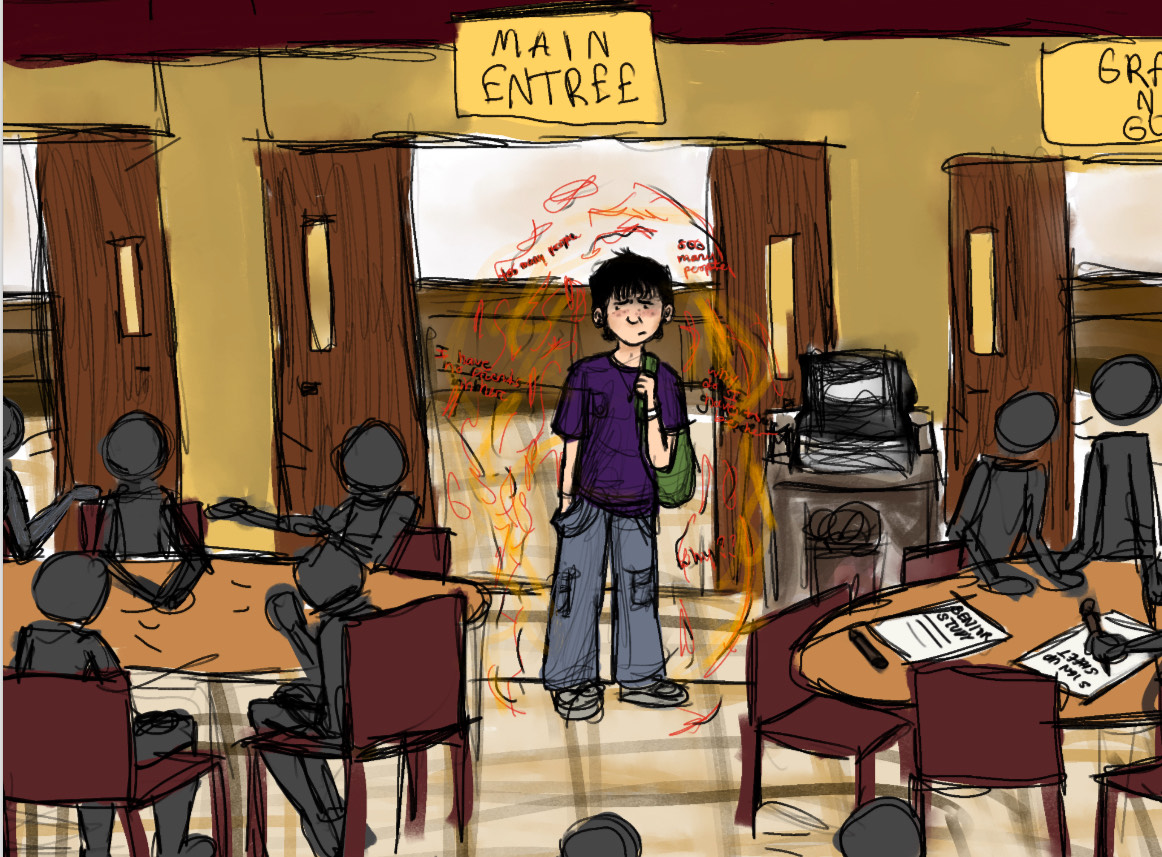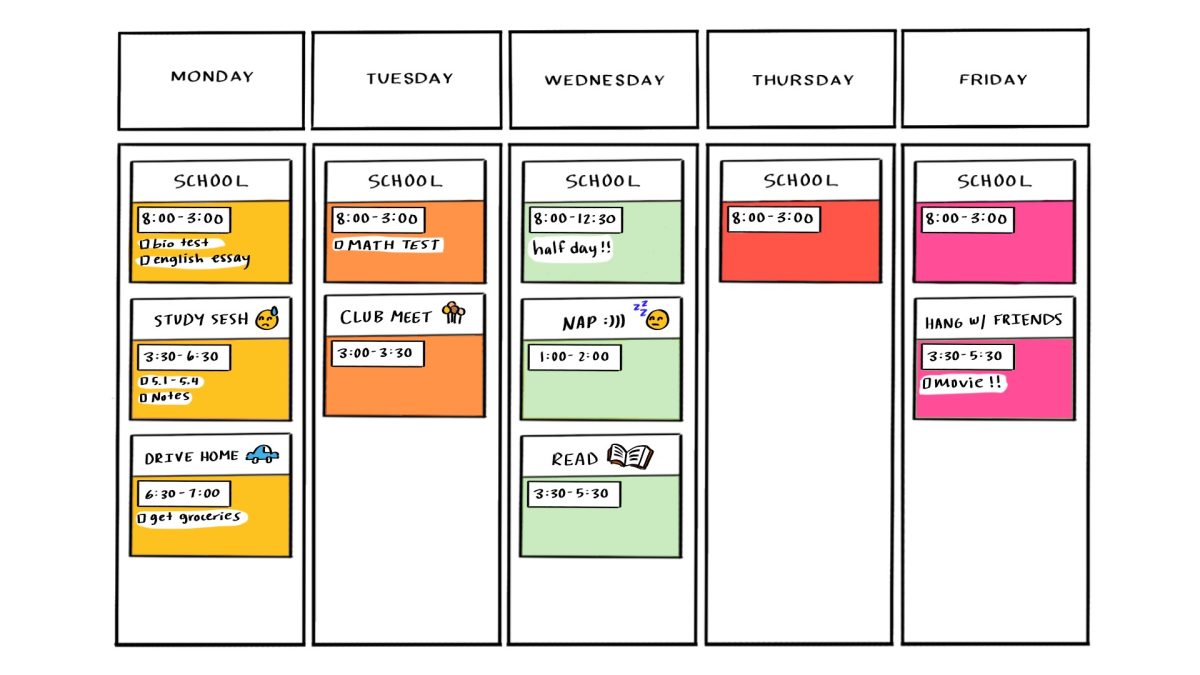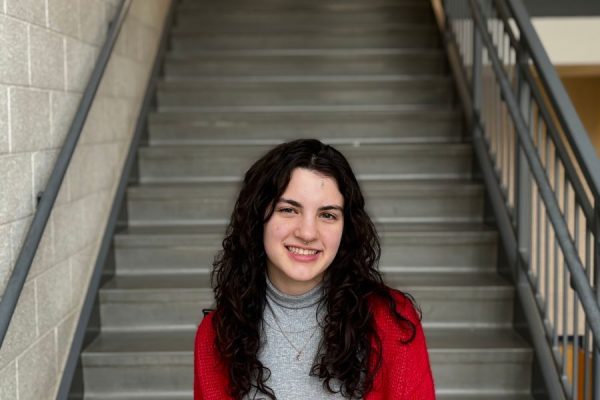It’s the middle of a busy day, and I walk the three flights of stairs up to my math class, only to be greeted with a sign on the closed door: my teacher is absent and my class has a cafeteria study. I head down the stairs and into the crowded lunchroom, sign myself in, and sit at a table with my classmates.
It’s almost impossible to focus when nearly half the tables are filled with other classes, many of which don’t have assigned classwork. It may not be the lunch period, but it certainly sounds like it. I decide to try going to the library, only to find myself in the exact same situation.
This experience is not uncommon; in my four years at Algonquin, I should expect it when a teacher is absent, but the situation is always met with frustration. The noisy environment can make it challenging for students to use their class time productively. I am lucky enough to have a senior study on my schedule this year, so I do have the chance to catch up on work or leave campus with my senior privileges during that time.
However, not every senior has that embedded break in their day and may be unable to use senior privileges even if they qualify for them. The qualifications state that students in their senior year who are in satisfactory academic and behavioral standing will have the opportunity to participate in a Senior Privilege Program, but only when they have a senior study in their schedule.
Academic pressures can cause seniors to refrain from signing up for a senior study in their schedules, despite the privileges that come with them. The desire for a GPA or resume boost can cause seniors to pack their schedules instead of signing up for a senior study, where they could get an academic break in the day.
There’s no doubt about the stress that high school students face every day, from homework to relationships to college applications. The 2021 MetroWest Adolescent Health Survey stated that two out of five students (42%) reported feeling nervous, anxious or on edge at least half the days in the past two weeks.
Research consistently underscores the importance of breaks for students’ mental well-being, particularly in high-stress environments. According to an article from the American Academy of Pediatrics, adolescents who take a break at school are more attentive and perform better cognitively when they return to the classroom since it provides time to mentally decompress.
Algonquin has made efforts this year to decrease student stress with wellness days, which have been met with mixed opinions. These reactions were expressed in the Harbinger article “Wellness days offer new approach to benefiting community” from last December.
“The day after the wellness day is more stressful than a typical school day because there is more homework to catch up on and cover,” junior Margaret O’Connell said in her December 2023 interview.
On Dec. 5, 2023, the ARHS administration experimented with the idea of expanding senior privileges, where seniors in a cafeteria study could leave as if they were in a senior study. The idea has not yet been revisited, but it resonated positively with seniors, offering a welcomed break from the school setting.
“That day, I got to leave school with a friend [in my class] to go to Starbucks,” senior Gaby Sidhom said. “It was a nice change because I don’t normally have a [senior] study.”
Expanding the Senior Privilege Program to include all seniors, regardless of an embedded senior study, could be an easy step to provide breaks: those who can drive can leave or if not, carpool with a classmate. The option to leave during cafeteria studies can not only improve mental health but also teach independence, a crucial skill as seniors transition beyond high school.
While some may worry that seniors will neglect their classwork if given the option to leave campus, this structure reflects college schedules in a similar way. College students are not provided with blocks of time to complete assignments, so giving seniors a chance to manage their own time is a valuable practice for those attending college. Additionally, a popular destination for seniors leaving ARHS is Aero or Starbucks, where they can still study or finish work, just in an alternative environment.
This process would also be an easy transition since students can sign out with the same system already in place for those in senior studies. There is always an established list of teachers who are absent on a given day, so the administration can verify the seniors who are leaving a cafeteria study.
Extending the Senior Privilege Program to include all eligible seniors can not only add necessary breaks in the busy school day but also empower students to practice independence. Seniors who leave during an otherwise overwhelming cafeteria study can come back to class with a refreshed mindset, better preparing them for future challenges that lie beyond these hallways.











